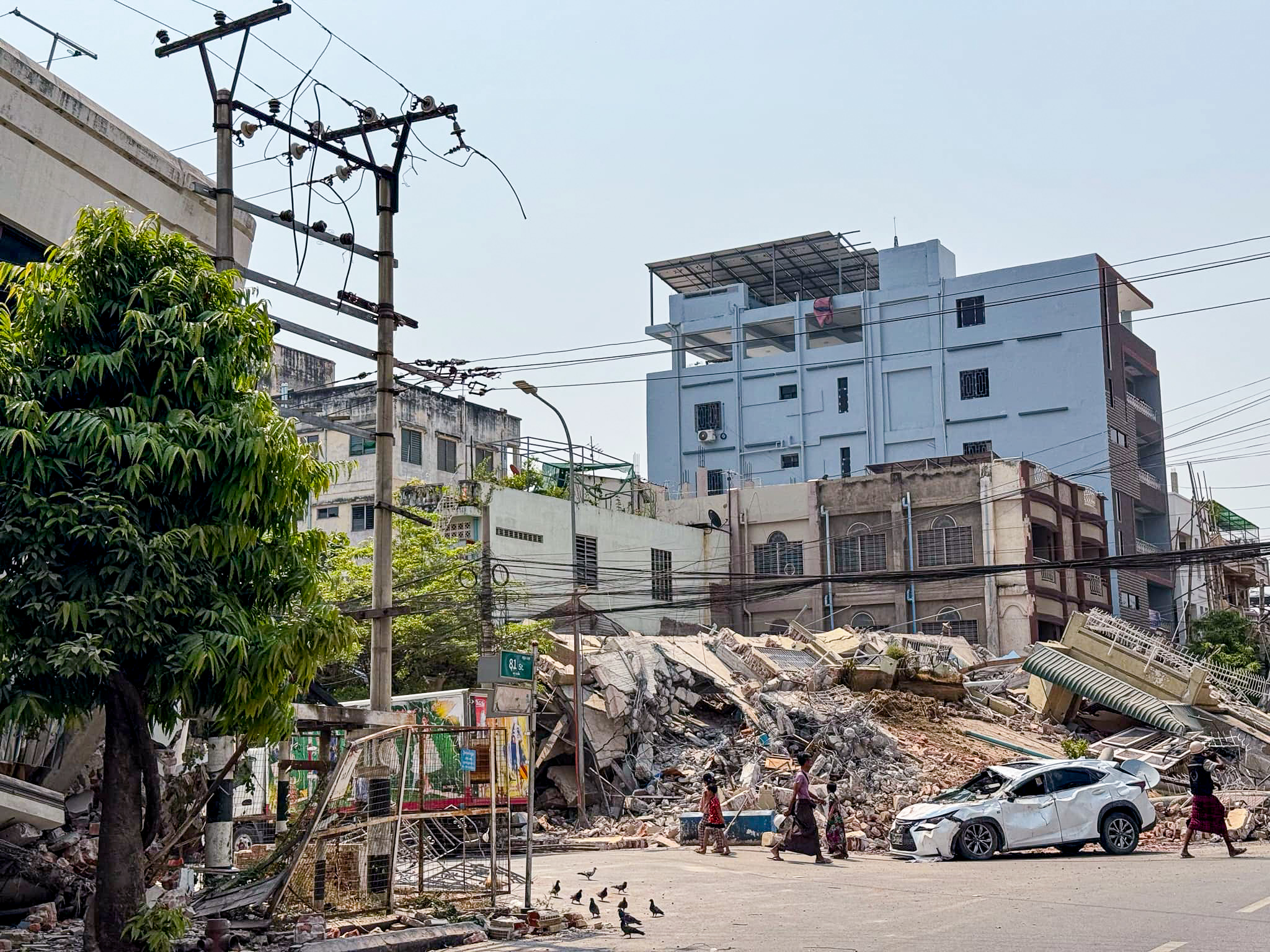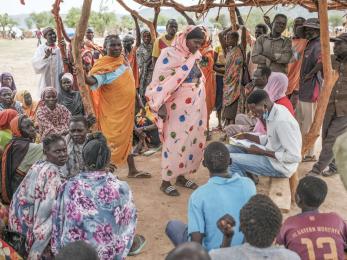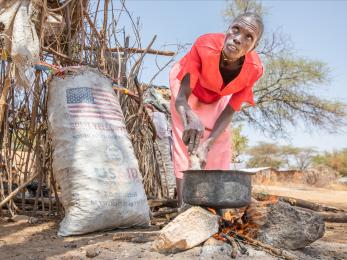COVID-19 and crises across the world

For more than a year, the COVID‑19 pandemic has wreaked devastation across the globe. While some countries are on the long road to recovery—with encouraging vaccination rates and lower hospitalizations—many more are experiencing the worst impact thus far. Long before the pandemic, many countries where Mercy Corps serves have been besieged by violence, natural disaster, hunger, and more. As the Senior Director of Humanitarian Response, I’ve worked with our teams to adapt and meet the critical needs of communities disproportionately affected by the pandemic. The spread of COVID‑19 compounds existing issues these countries face, and now there’s the challenge of receiving and administering vaccines. The vaccine is a public good and we have a responsibility to support getting vaccines to every person in the world who wants one. Mercy Corps is working across the world to help countries find solutions to the unequal global rollout of vaccines—advocating to make vaccines more available to everyone, everywhere.
From Yemen to the Democratic Republic of Congo, here is a look at some countries facing immense humanitarian crises combined with the effects of COVID‑19, and how Mercy Corps is supporting their communities.
Yemen

Since the eruption of the war in 2015, Yemenis are living through what is known as the world’s worst humanitarian crisis. The violence and economic decline has displaced more than 4 million people, with the risk of famine-like conditions occurring this year. With a debilitated healthcare system and lack of information about COVID‑19, communities in Yemen have experienced surges of infection, although the actual number of cases remains unknown due to limited testing.
Safety, health, and nutrition are all at stake in Yemen, which is why Mercy Corps is working with local communities to improve access to nutritious food, clean water, sanitation and hygiene services, and support small businesses across the country—boosting recovery and community resilience.
Democratic Republic of Congo

After two decades of ongoing conflict and insecurity, the Democratic Republic of Congo (DRC) has the highest number of displaced people in Africa and the second highest number of severely food insecure people in the world. This spring, the DRC recovered from its twelfth Ebola outbreak—a virus endemic to the country. To make matters worse, the country’s Mount Nyiragongo volcano erupted in May, forcing thousands of residents to flee their homes. All of this instability has contributed to the third wave of COVID‑19 infections across the country, even as leaders rush to vaccinate their communities.
Since COVID‑19 was first detected in DRC, Mercy Corps adapted its Ebola prevention and sanitation programming to raise awareness about COVID‑19 while also sustaining programs providing food security, support for farmers, and training for small businesses. Following the recent volcanic eruption, Mercy Corps is helping to restore access to clean water in areas where the infrastructure was destroyed by lava flow. In order to prevent further COVID‑19 infections, it’s vital to provide consistent access to water for handwashing, along with other safety measures like masking up and social distancing.
Afghanistan

Decades of ongoing conflict, political instability, drought, and economic chaos have left Afghanistan one of the world’s most unstable nations. On top of its many challenges, the country faces significant risks brought on by the COVID‑19 pandemic. In June, COVID‑19 cases increased 2,400% in a month, overwhelming under-resourced hospitals operating at full capacity.
Prior to pausing our programming as we monitor the situation in the country, Mercy Corps was working in Afghanistan’s Herat province, which has been hit particularly hard by the pandemic, by ramping up our existing community health work with internally displaced people to prevent the further spread of COVID‑19.
Our team distributed health and hygiene supplies and shared critical information about COVID‑19 on awareness posters. In order to help Afghans recover from the pandemic and to support the country’s economic development, Mercy Corps also provided youth vocational and agriculture programs to create sustainable livelihoods to ensure the people we serve can feed their families and build stronger communities from within.
We intend to resume our operations in Afghanistan as soon as it is safe to do so, with a focus on meeting urgent needs such as clean water and sanitation supplies for those who have been displaced from their homes, many of whom are living without shelter and access to basic necessities.
Sudan

Since November 2020, escalating violence has forced more than 60,000 Ethiopians to flee their homes in the Tigray region—plunging the area into famine where at least 350,000 lives are at risk of extreme hunger. Many have escaped to neighboring countries like Sudan, with more than 20,000 refugees settling in Sudan’s Um Rakuba camp, where Mercy Corps runs the main health clinic.
Our team provides urgent medical care to the thousands of refugees at one health clinic in Um Rakuba camp. In addition to treating common illnesses like malaria and respiratory infections, the clinic must also coordinate care for patients experiencing COVID‑19 infections and other severe illnesses. Sudan recently experienced a second wave of COVID‑19 cases and the health clinic team continues to raise awareness to practice social distancing and frequent handwashing, even though it is difficult in a refugee camp setting. There’s limited stock of medical supplies and medication, including access to the COVID‑19 vaccine. By working with larger healthcare facilities in the nearby city, our team can help find proper care for patients in need.
In these places and more than 40 countries around the globe, our teams are hard at work to understand how vaccine access is being implemented in order to support their communities. While the vaccine is just one piece of a complicated puzzle to ending the pandemic, other pieces remain: social distancing, handwashing, and masking up. We will continue to prioritize COVID‑19 prevention awareness while also helping the people we serve meet their urgent needs. Through cash assistance for families, small business grants, and other critical programs, we are helping communities recover from the pandemic. We are committed to working alongside them to find long-term solutions to build a better tomorrow—especially for communities already experiencing crises.



